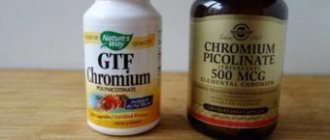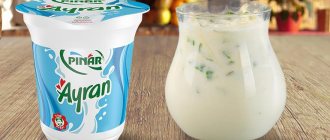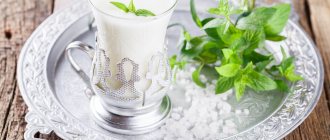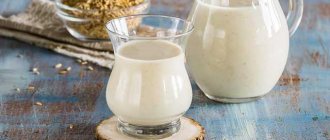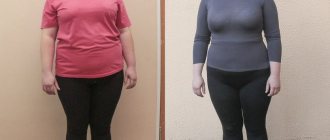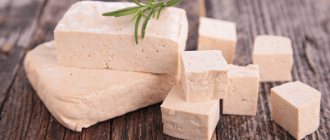Why I decided to give up milk
Since childhood, I have been told about the importance of dairy products for the body: they are necessary for growth, skeletal development, strong bones and teeth. We always had yoghurts, cheeses, milk and much more in the refrigerator. I was a child who didn’t understand how you could eat borscht without sour cream and not wash down your mother’s freshly cooked pies with a warm glass of milk, or how you could refuse sandwiches with cheese. But even ingrained habits can be changed - I experienced this from my own experience.
Today there are fights without rules around milk: from convincing evidence of its irreplaceability to... equally convincing evidence of harm. I will describe my personal experience: how I gave up dairy products, what changes I noticed and why this lifestyle completely suits me today. As you read, remember: this does not mean that it will work in your case as well. But it's definitely worth a try.
Why you need to say no to industrial milk
The growing intolerance to milk is associated not so much with it as with modern technologies for its production and processing: after all, dairy products have long been the basis of the diet of many cultures around the world. Today we are raising cows that produce three to four times more milk than a hundred years ago, and this is what is behind it.
First, cows are herbivores by nature and are fed grain. With grain, GMOs and chemicals enter their body, which then cause various pathologies in us.
Secondly, cows are regularly fed growth hormones (banned in Europe because they destabilize the endocrine system) and antibiotics. In addition, cows are kept in unnatural habitats.
Almost all milk, including organic milk, is pasteurized to reduce the number of pathogens, which are a dime a dozen in commercial products, and to extend its shelf life.
These processes, especially high-temperature ultra-pasteurization, can change the components of milk, reducing the digestibility of casein, which provokes allergic reactions. This is why a large glass of milk can cause more discomfort than, say, a couple of spoons of sour cream in soup.
How to read the packaging. If you buy packaged dairy alternatives, choose organic, non-GMO, non-sugar ones with a minimal list of ingredients. Avoid products with carrageenan, a thickening agent derived from red algae, which is a strong allergen. And stay away from soy milk, a highly processed product that is an endocrine disruptor.
It won't go away on its own
At the age of 17, like many people, I started having skin problems. There were rashes not only on the face, but also on the back and chest. I visited many cosmetologists and endocrinologists. I took a million tests, but the doctors just kept saying: “It’s an age thing, it will go away on its own.” Or they prescribed hormonal drugs.
But I wanted to find a reason. One day I met a friend who always suffered from skin imperfections, and I couldn’t believe it: her face was clean and smooth. I started asking what she was doing and what magic drugs she was taking. But it turned out that she simply got rid of dairy in her diet: tests showed lactose intolerance in her case, and perfect skin became a positive bonus of the new lifestyle.
I started reading literature on this topic. I learned that milk usually contains the hormones progesterone and estrogen, which can affect hormonal levels, resulting in rashes, dryness and eczema.
Cappuccino with coconut
First, I removed milk in its pure form - in my case, this means that I stopped drinking milk in glasses, and added coconut or almond milk to my coffee. Honestly, it wasn’t difficult! I explored all the coffee shops near my home and work that had alternative options, and sometimes I went to visit with my own carton of coconut milk (to make sure I didn’t stray from my chosen path). By the way, pay attention to the composition of plant milk! Sometimes it is better to drink cow's milk than an alternative with sugar and other unnecessary ingredients.
Miracles, but after two months the rashes on my body disappeared, subcutaneous pimples and redness disappeared from my face, but there was still something to work on. I began to feel much better, the signs of bloating went away, and I had more energy.
I no longer perceived the taste of regular milk, and when I tried it by mistake, I felt disgusted.
After getting my hormones tested, I found that almost everything was back to normal. The doctor simply answered my stories about a new way of life: “I told you that everything will get better with age, milk has nothing to do with it.” At that moment I decided that it was time to change doctors.
Expert comment:
Elena Shifrina
nutritionist, healthy lifestyle expert and creator of BioFoodLab
According to American studies, 75% of people on the planet have lactose intolerance - many simply do not notice its manifestations and consider periodic bloating, rashes on the face and swelling to be normal. Regarding antibiotics, everything, of course, depends on the integrity of each individual manufacturer. I know that in Russia they are developing GOST, which will completely ban antibiotics in raw materials and, as a result, in finished dairy products. But for now all this is at the development stage. Factory milk often contains growth hormones, and in quite large quantities. They are designed for the growth of calves and can have a negative impact on the health of an adult, causing him to “grow” in the wrong direction. Choose products not from factories, but from farms, where the living conditions and keeping of animals will at least meet environmental standards.
Arguments against milk
Numerous studies conducted recently have been aimed at the absorption of milk proteins, their effect on the body, the consequences of refusing the product, etc. Scientists have revealed a lot of negative things in what we were sure was impossible to live without. Milk is harmful, lactose destroys the body, casein is poison. Let's figure it out in order.
Reasons for giving up dairy:
- Milk sugar - many nutritionists are sure that the human body is not able to digest it. In addition, humans are the only species in nature that feed on the milk of another species, and also continue to consume milk after breastfeeding. But, in fact, he doesn’t need it. And the beneficial substances it contains, for example, calcium or vitamin D, in the same volume or even more, can be obtained from other products or dietary supplements.
- Harmful additives - the modern food industry shamelessly adds antibiotics, hormones and other harmful substances to milk. These components allow you to preserve the product in its original form longer, so to speak. Of course, you can switch to homemade milk, but this leads to the next point.
- Fat – Dairy products are generally fatty. Nothing good can be said about low-fat ones, since instead they add a lot of sugar and chemicals to compensate for the “empty” and unsaturated taste.
- Casein is a milk protein that complicates digestion; it promotes the formation of clots in the intestines, which makes normal digestion difficult. There is an opinion that it is the process of pasteurization of milk that deactivates the enzymes that can digest this protein.
- Lactose - 5% of the world's population suffer from lactose intolerance; they involuntarily have to replace milk with another product. In addition, although this has not been clinically or scientifically proven, lactose is associated with a negative effect on the digestive system and skin: inflammation, acne, bloating, intestinal irritation, etc. In addition, experts noticed increased mucus formation in the respiratory tract after drinking milk.
- Osteoporosis – sounds paradoxical, but milk helps to wash out calcium from the bones. Because this product creates an acidic environment, large amounts of calcium are required to neutralize it. The body has no choice but to take it from the bones.
You can compensate for the lack of calcium and your daily need without dairy products.
There is a lot of Camembert
In principle, everything suited me. Small imperfections on the skin could be hidden with foundation, and if you regularly visited a cosmetologist, you could forget about them.
I continued to live without milk, but I didn’t think about completely giving up fermented milk products. I could afford to eat cottage cheese with fruit for breakfast, and drink a glass of kefir in the evening. This went on for two years, the end point being my trip to France. Honestly, I couldn’t imagine traveling to this country without Camembert and Brie cheeses, fresh croissants with butter in the morning, homemade yoghurts... Of course, I tried to eat all this every day in order to, so to speak, “stock up” until the next trip. I repeat, I still didn’t drink milk. However, two weeks later, when I returned home, I discovered that the rashes on my face had intensified, severe swelling appeared, and I felt a constant heaviness in my stomach.
Somehow, by chance, on Facebook, I came across a lecture by Dr. Walter Weiss on milk. The video is only 1.5 hours long, but in it he systematically talks about the impact of dairy products on humans. For example, he speaks of man as the only living creature that continues to consume dairy products throughout his life, while all other mammals only in childhood.
Or he says that milk contains a type of sugar called galactose, which is absorbed only in the child’s body. In an adult, it is deposited in the joints, under the skin, on the lens of the eye and in the reproductive system.
The next day I came across the Avocadosasha blog, which tells how to eat smart and balanced for health and maintaining youth. There I read about casein, which is formed during the curdling of milk and is found in all dairy products, and has properties like a narcotic substance. It not only forms an addiction to milk, but also affects various allergic reactions, swelling and contributes to the development of diabetes. At that moment, I realized that this was a sign, and it was time for me to say “goodbye” not only to dairy, but also to fermented milk products.
Having updated my grocery cart, I mercilessly threw out all the yoghurts, cottage cheese and kefir from my refrigerator and started a new life.
Withdrawal began on the third day: I woke up with the thought that I urgently needed cheesecakes. I tried to distract myself, but all attempts were unsuccessful. Suddenly I found myself at the store checkout with cheesecakes and sour cream in my hands. Then it’s like a fog.
But I still decided not to give up, just to give up more smoothly. I allowed myself one dairy product a day, but only if I really wanted it. It could be a cheese sandwich, cottage cheese casserole or yogurt. Thus, after three weeks I said goodbye to dairy addiction, and the look at my favorite cheesecakes was indifferent.
How my life changed after giving up dairy
What changes have I noticed in myself? Firstly, all the skin rashes went away. The face became smooth and without redness.
Secondly, I began to feel much better and stopped getting sick often. The skin on the body smoothed out, the orange peel disappeared, but the weight remained the same. The swelling also left me.
I was pleased to realize that I could look at cheese with a cool gaze or calmly walk past the cheesecakes in Coffeemania.
At the moment I don't eat dairy products at all. An exception might be Italian pasta in a creamy sauce or a piece of Napaloen cake, but this happens a couple of times a year, and I immediately notice all the delights of the side effects on myself.
With my story, I am not encouraging anyone to give up dairy products forever. Perhaps this lifestyle is not suitable for some, but for the sake of experimentation, I would advise you to give up for at least a month and look at the results.
Expert comment:
Elena Molokova
endocrinologist, anti-age specialist at the ASTRAMED innovation laboratory
A complete rejection of regular cow's milk has nothing to do with a healthy lifestyle. Cow's milk contains about 50 useful microelements and more than 20 vitamins that are necessary for the normal functioning of the body. The main ones are calcium, which is responsible for the health of bones and teeth, and protein, a building material for muscles and a source of energy. In addition, milk is rich in potassium, which strengthens blood vessels, normalizes blood pressure and heart rate, vitamins A and B2, which improve skin condition, vitamin D, which improves immunity and is involved in the production of the hormone of happiness, as well as useful magnesium, phosphorus, potassium and chlorine. Regular consumption of cow's milk increases immunity and improves memory, so if you have no contraindications, you should not deny yourself cow's milk. It’s another matter if you notice a direct connection between your general condition and milk intake. Then you need to take a blood test for lactose intolerance and a food panel.
How will your body change when you give up dairy products?
As already stated, the benefits of giving up dairy products outweigh the harms. And, of course, there are significant benefits to such nutrition that everyone should know about. Let's name the important advantages that cannot be kept silent about.
- Avoiding dairy will benefit your digestion
About 65% of the world's population suffers from lactose intolerance to varying degrees. Research suggests that these same people have a lower risk of lung, breast and ovarian cancer. Therefore, many experts believe that lactose intolerance is a natural protective reaction of the body. However, many people continue to drink milk and endure the resulting discomfort, characterized by irritable bowel syndrome. Therefore, it is always better to listen to your body and act as it tells you.
- You can reduce your risk of developing cancer
Previously, researchers from Sweden found that women who drank more than 1 glass of milk per day were 2 times more likely to suffer from ovarian cancer. But scientists from Harvard examined men who drank 2 times more milk than the recommended daily intake. The results found that their risk of developing prostate cancer was 34 percent higher than those who drank less milk.
- You will reduce your risk of developing diabetes
Low-fat dairy products are not as beneficial for the body. Scientists, doctors, nutritionists, etc. talk about this. It has been shown that the more low-fat dairy products you eat, the greater your risk of diabetes. The reason may be that manufacturers replace missing fats with sugar. They also turn dairy products into potentially dangerous ones.

